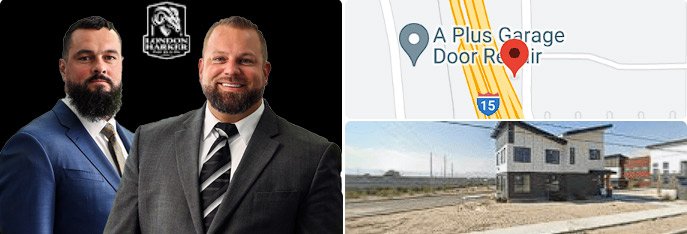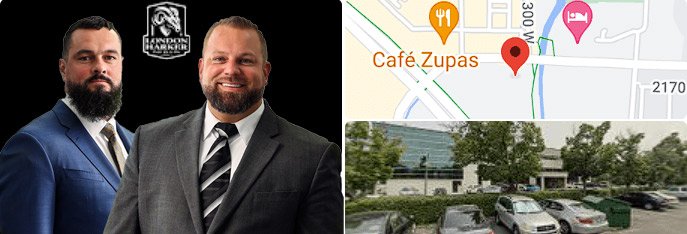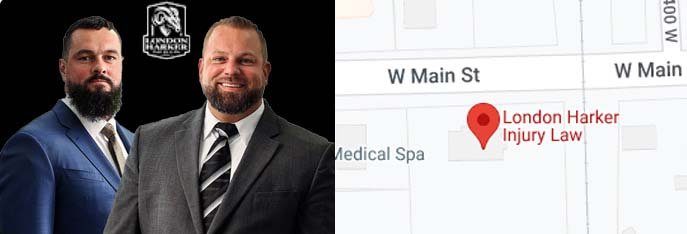Posted on Friday, July 18th, 2025 at 1:00 pm
If your vehicle was recently totaled in a Utah auto accident, understanding how your insurance company calculates its value is key. Insurers use Actual Cash Value (ACV) to determine what they’ll pay out—an amount that can feel unfair or confusing if you don’t understand how it works. In this post, we’ll break down what ACV really means, how it’s calculated in Utah, and what you can do if you disagree with your insurer’s offer.
What Is Actual Cash Value (ACV)?
Actual Cash Value is your car’s market value at the time of the accident, minus depreciation. It’s not what you originally paid or what you still owe on your loan—it’s what your car was worth right before the crash.
When your car is totaled, your insurer pays you the ACV (minus any deductible). In Utah, a car is usually considered a total loss if the repair costs exceed its fair market value. Utah’s insurance code supports this process.
How Is ACV Calculated?
Most Utah insurance companies use this simple formula:
ACV = Replacement Cost – Depreciation
Here’s a breakdown of what that includes:
-
Replacement Cost: What it would cost to buy a comparable car today
-
Depreciation: Value lost due to age, mileage, wear and tear, and market demand
For example, if your 3-year-old car cost $30,000 new and is now worth $18,000 due to depreciation, that’s your ACV. If your deductible is $1,000, you’d receive a $17,000 payout.
What Affects Your Vehicle’s Value?
Several factors impact ACV in Utah:
-
Mileage: Higher mileage = faster depreciation
-
Age: Newer vehicles lose value rapidly
-
Condition: Clean, well-maintained vehicles fetch more
-
Model & Brand: Some brands hold value better (e.g., Toyota, Honda)
-
Location: Market demand in Utah can affect pricing
-
Modifications: Quality upgrades may help or hurt value
-
Accident History: Past crashes can drop resale value significantly
How Insurance Companies Calculate ACV in Utah
Insurance companies use tools like CCC, Mitchell, and NADA Guides, along with market data, to assess your vehicle’s worth. Here’s what typically happens:
-
Initial Assessment: Make, model, year, mileage, and VIN details are collected
-
Condition Review: Interior, exterior, mechanical condition evaluated
-
Comparable Sales: Market research includes local sales, auctions, listings
-
Adjustments: Algorithms adjust for condition, features, market trends
-
Final Review: A human adjuster finalizes the number
You can cross-reference their results with tools like Kelley Blue Book and Edmunds.
ACV vs. Replacement Cost Coverage
| Feature | Actual Cash Value (ACV) | Replacement Cost Coverage |
|---|---|---|
| Payout | Depreciated value | Cost to buy the same car new |
| Monthly Premium | Lower | Higher |
| Depreciation Impact | Yes | No |
| Ideal For | Older or paid-off vehicles | New cars or vehicles under loan/lease |
| Available For All Vehicles? | Yes | Usually limited to cars under 5 years old |
If you have a loan, consider GAP insurance, which covers the difference between the ACV and your remaining loan balance. New car replacement is another add-on that helps if your car is totaled shortly after buying it.
What to Do if You Disagree With an ACV Offer
Insurers don’t always get it right. If you think your payout is too low, here’s how to respond:
1. Don’t Accept the First Offer
They often start with a low number. Take time to evaluate it.
2. Gather Evidence
-
Photos of your vehicle before the crash
-
Maintenance records
-
Receipts for upgrades or new parts
-
Comparable local listings for the same make/model/year
3. Use Online Tools
Sites like KBB and NADA can help you determine fair value.
4. Request an Independent Appraisal
If your insurer allows it, get a licensed appraiser to review the value.
5. File a Complaint
If negotiations stall, file a complaint with the Utah Insurance Department. They can review your case and intervene if necessary.
Salvage Titles and Retaining Your Car
If you want to keep your totaled vehicle, you can. But it’ll be issued a salvage title by the Utah DMV, and you’ll likely receive a reduced payout from your insurer.
Need Legal Help After an Accident?
If your car was totaled in an accident and you’re struggling with your claim or were injured, working with a legal professional can help. Our Sandy car accident lawyers can:
-
Review your ACV offer
-
Negotiate with the insurance company
-
Pursue additional compensation if the crash wasn’t your fault
Final Thoughts
Understanding how Actual Cash Value is calculated in Utah empowers you to fight for a fair payout. Whether your car is worth $5,000 or $50,000, you deserve a settlement that reflects its true pre-accident value.
If you’re feeling overwhelmed or your insurer isn’t playing fair, reach out to our team at London Harker Injury Law. We’re here to protect your rights after a serious auto accident in Utah.
Need help with your car accident claim? Contact us today for a free consultation.



